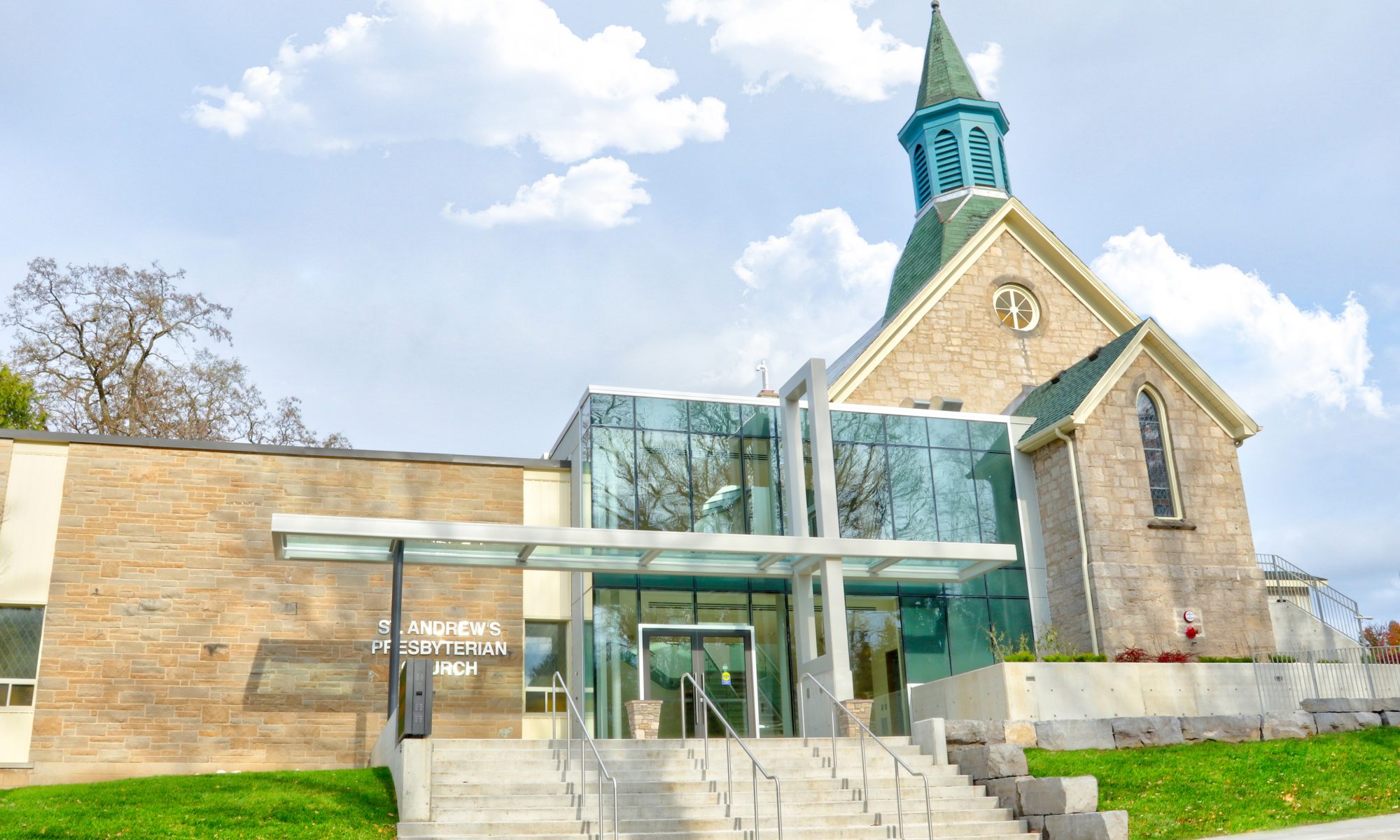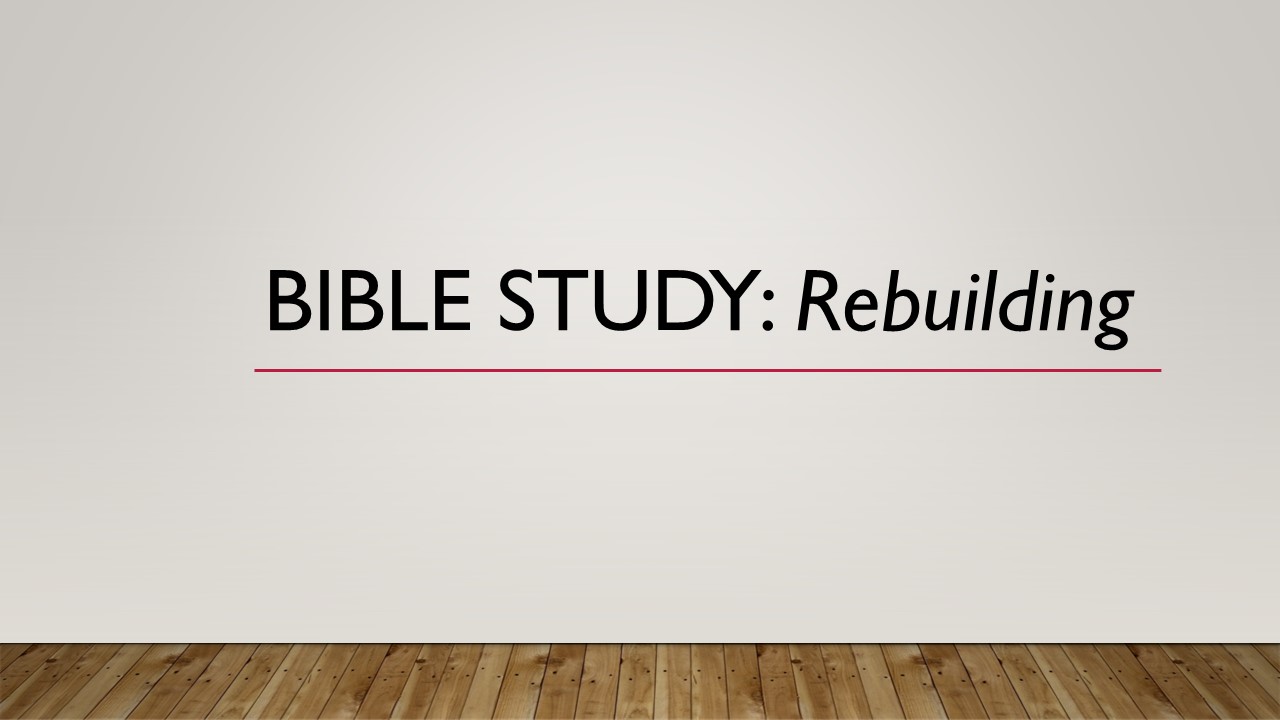Study Video
Study Overview
This Bible Study goes along with a sermon series we’re working through at St. Andrew’s called “Rebuilding.” If you haven’t listened to the first message in the series from February 13th you can find it HERE.
In the message I give a very quick run down of the books of Ezra and Nehemiah (which are one scroll in the original Hebrew and tell one story). For a bit more detail you can find a great summary video at the BibleProject: https://bibleproject.com/explore/video/ezra-nehemiah/
It may also be helpful to have an idea of where Nehemiah falls in the overall story of the Bible. The following timeline is taken from John Goldingay’s highly accessible commentary Ezra, Nehemiah and Esther for Everyone, which you can purchase on Amazon, Indigo and elsewhere.
1200s Moses, the exodus, Joshua
1100s The “judges”
1000s Saul, David
900s Solomon; the nation splits into two, Ephraim and Judah
800s Elijah, Elisha
700s Amos, Hosea, Isaiah, Micah; Assyria the superpower; the fall of Ephraim
600s Jeremiah, King Josiah; Babylon the superpower
500s Ezekiel; the fall of Judah; Persia the superpower; Judahites free to return home
400s Ezra, Nehemiah
300s Greece the superpower
200s Syria and Egypt, the regional powers pulling Judah one way or the other
100s Judah’s rebellion against Syrian power and gain of independence
000s Rome the superpower
Week 1: Nehemiah Chapters 1 & 2
This first study session will go deeper into themes explored in part 1 of the “Rebuilding” series and the chapters 1 & 2 of the Book of Nehemiah.
-
- In the message we considered some parallels between our situation after 2 years of a global pandemic and the situation of God’s people two generations after the Exile to Babylon. One common theme was that of repeated setbacks and long delays in the work of rebuilding.
Questions:
-
-
- How do you think the setbacks and delays experienced by God’s people in Jerusalem affected them?
- How do you think that the repeated setbacks and delays we have experience with COVID have affected you and the people around you?
- How have these things affected our church?
-
-
- The first thing that Nehemiah did when he was confronted with the reality of life back in Jerusalem was pray – which included grieving and fasting before God.
Questions:
-
-
- What grief are you carrying from COVID? What loss, frustration or sadness have you experienced along the way?
- Have you shared this grief with anyone? Have you shared this grief with God? Is there someone you could talk to about this? Do you think you could bring this grief to God in prayer?
- Are there things that we are grieving as a church right now?
-
-
- In our readings for February 13, we skipped over the words of Nehemiah’s prayer in 1:5-11. Take a moment now to read that prayer slowly and carefully, then read it out loud.
Questions:
-
-
- Nehemiah spends a lot of time confessing his sins and the sins of his people. How comfortable are you with reflecting on sins and mistakes? Is confession a part of your prayers?
- Is there anything in your life you need to confess in order to move forward?
- Nehemiah also spends time in this prayer reflecting on the story of God’s faithfulness to his people, and his plan for them and for the world. How would you tell this story as it relates to us as Christians today?
- Do you reflect on the story of God’s faithfulness in your prayers? How might this help you in difficult times?
-
-
- Read Nehemiah 2:1-8 and the refer back to the prayer in 1:5-11 as well.
Questions:
-
-
- What connections do you see between Nehemiah’s prayers and the approach he takes with the king of Persia (ie. his plan)?
- Do you pray before you make your plans, or do you plan and pray that it just works out? Do you pray once at the start, or do you pray along the way?
- How well do you think we do this as individual Christians and churches today?
-
-
- Read Nehemiah 2:9-16. Take note of everything that Nehemiah does in these verses.
Questions:
-
-
- In these verses we see Nehemiah make preparations and take action in a more or less balanced way.
- Are you someone who is better at preparing or taking action? Do you find one easier than the other – if so why?
- One important result of Nehemiah’s work in this section is that he gets thorough assessment of the problem he and the people of Jerusalem are facing.
- If there is something that needs rebuilding in your life right now, have you made a realistic assessment of the situation?
- If so, does this encourage you to action or leave you feeling overwhelmed?
- In these verses we see Nehemiah make preparations and take action in a more or less balanced way.
-

